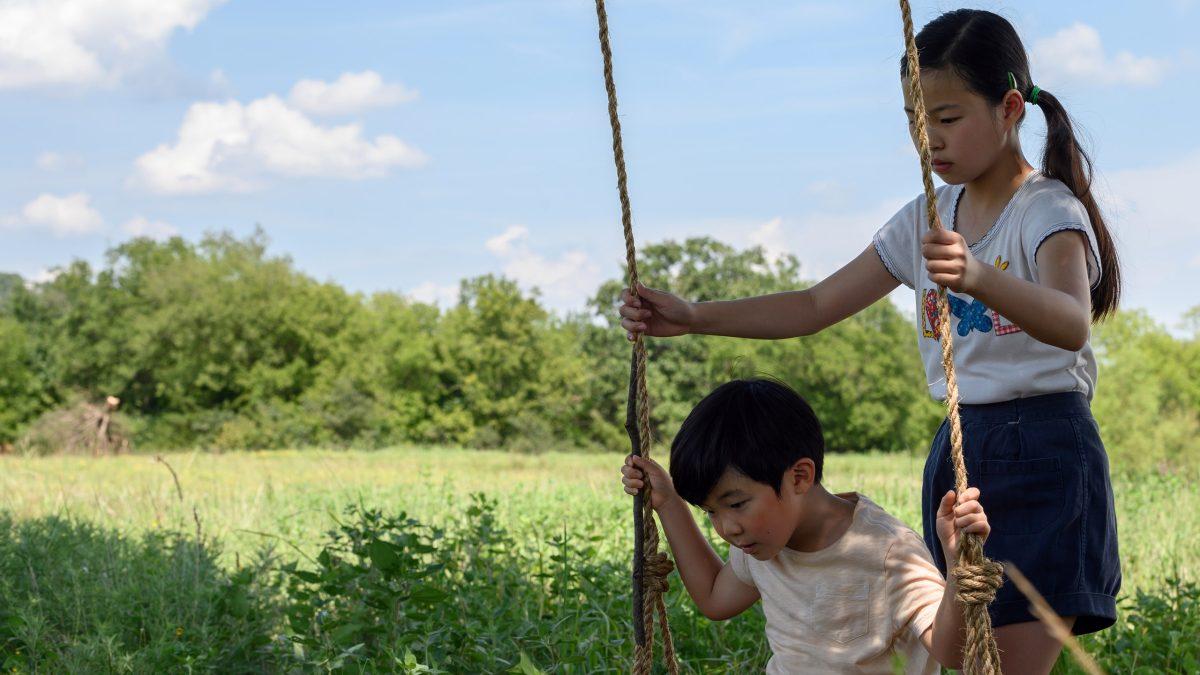In many ways, Minari is a breakthrough of a film, capturing an experience that resonates with the Korean diaspora and the East Asian community at large. For the first time, people felt seen and heard on screen, their childhoods validated. But what was unheard spoke much louder: Anne, the obedient daughter. Anne’s characterization has been marinating in my mind. How old is she? How did she feel about each event? Who is she besides servicing her family? Who is she besides being a step-in mother for little David? She had virtually no dialogue. Did we ever see her smile? If there was a Bechdel Test for “interactions of a daughter with persons other than her family or for purposes other than helping,” this movie would have failed.
Minari is set in the 1980s, featuring a Korean family uprooting their life in California and starting anew in Arkansas. The patriarch of the family, Jacob, has the dream of growing Korean produce on his farm. The financial stress that the family endures tests the couple’s bond as an underlying tension throughout the movie. The social isolation the family experiences by not settling in the big city emphasizes the foundation of family. The movie’s main character is David, who is six years old and has a heart murmur. Anne’s age is never specified, but she is old enough to witness the arguments and understand the hardship her family is enduring. She watches David while her parents work and handles emergencies. She seems very observant and quiet, shying away from others her own age. In the official screenplay, Anne’s name is mentioned 201 times, compared to David’s 446. “Anne and David” is mentioned 13 times, “David and Anne” 15 times. “And Anne” hit 21 searches, yet “Anne and” only hit 13, indicating that when Anne is placed first, she is only mentioned as a pair with David, whereas David or another character often comes first when mentioned in tandem with Anne.
Near the end, Monica, the mother, tells Anne how sorry she is: “You’ve grown up so much. Already seem like an adult. Mom is sorry to make you do so much. I left you both alone. It won’t happen again.” Let us dissect this: starting off with the adult comment is meant to praise Anne for her maturity, without acknowledging that it is a trait she was forced to develop by external circumstances. Monica then apologizes, yet never specifies in detail what she is apologizing for. The follow-up makes it seem like the fault was to leave them alone at home, instead of giving her duties that are not fit for a child in the first place. She ends with a promise that is sure to be broken — something of which I am certain Anne is aware. This is a demonstrative apology that is meant to show the guilt her mother feels, not a restitutional apology that would change the parenting dynamic or behaviors.
Anne knows her life circumstances are out of her parents’ control: they have to work full time, grandma just suffered a stroke, making Anne herself the torchbearer of the family. The scene seems hastily added, just to include another facet in the already convoluted story. The financial tension throughout the movie is something that I am sure many have experienced, and it has left a lasting psychological mark on me. I felt anxious watching this film, being reminded of the guilt I feel for attending college, not picking a stable and profitable major and other sins.
The “eldest daughter of an immigrant family” phenomenon has been popularized on social media; it is a widely shared experience. I know several eldest daughters with a teen brother who has no life skills and just plays video games all day, while they help with the youngest sibling, work a part-time job, attend school, translate all the documents, make phone calls, drive said siblings around, keep track of toddler sibling’s iPad screen time, tutor said siblings, make meals … the list goes on and on. (Luckily I do not have a useless teen brother, just two younger siblings instead.) We know we shouldn’t complain, and if we do, we get a mouthful of guilt-inducers: we gave up so much to come here for you! This is all for you! You are gaining life skills!
We know, we know.
In many cultures, daughters are already expected to take care of more household duties than sons, and being the oldest “guinea pig” compounds upon that. “How lucky we are to bear daughters! They won’t abandon us when we are old,” they joke. (Because sons obviously won’t care, it is built in their genetics, they’ll put us in nursing homes! Haha.)
Anne never complained.
Write “don’t fight” really big on the paper airplanes, she said to David. They tossed the airplanes at their parents as Monica and Jacob yelled at each other. Life skills.
We are the social safety net, the retirement plan, the de-escalation expert, the translator, the role model, our customer service voices long perfected. Being a moral beacon is tiresome and only excuses the behavior of sons. In some cases, the sons are babied unnecessarily, as if they must be protected so at least one child can stay a child forever.
“Daughters are so precious,” they toast at the dinner table. We are paraded around in front of their friends. The next day, we put on two masks and venture into the local Asian market with a list of groceries. On the way home, we fill up gas and pick up some essentials from Costco with our mom’s membership card. The cashiers cannot tell the difference.





